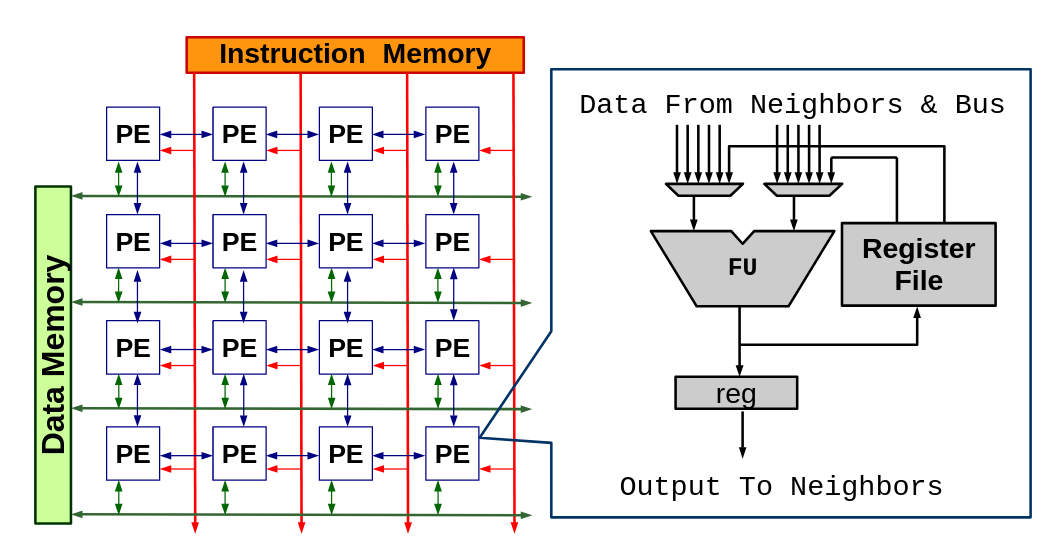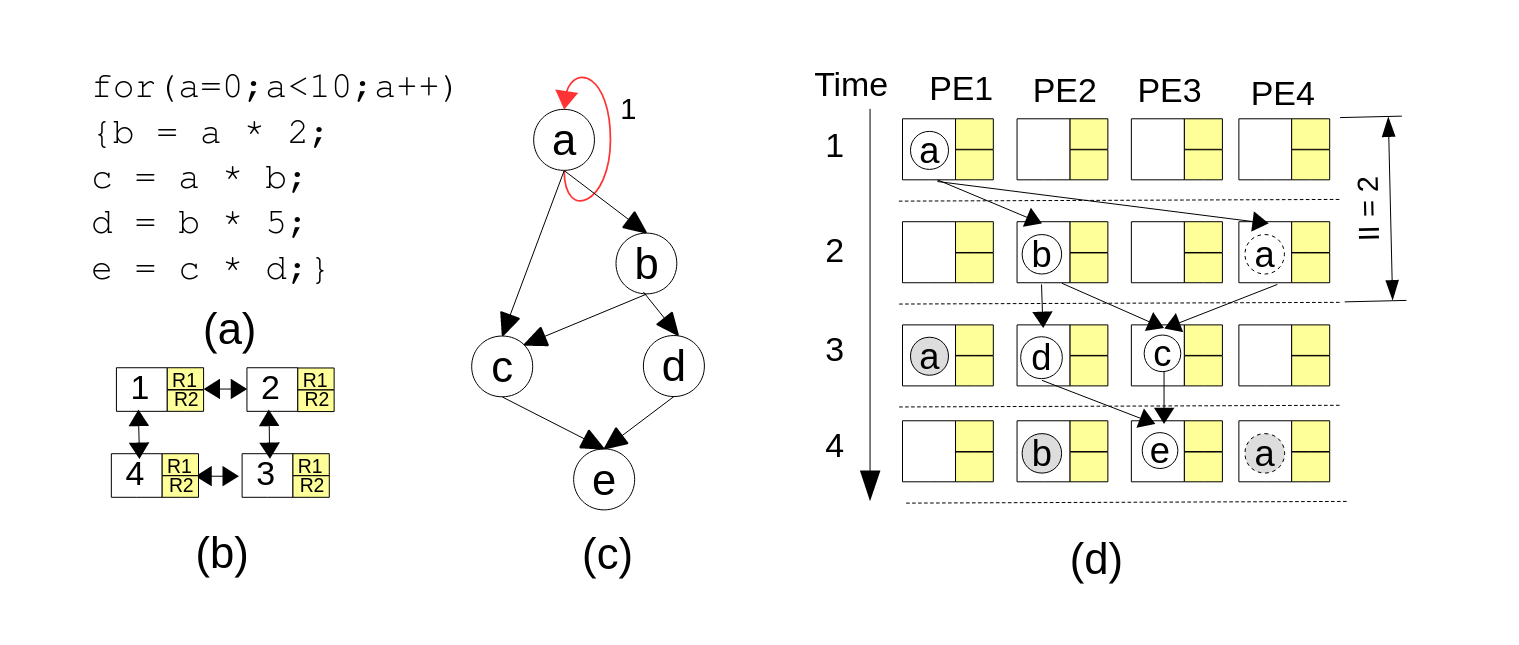CGRA Compilation Framework 20.04
An open-source framework to explore and further compiler research for the CGRA hardware accelerator
CCF (CGRA Compilation Framework) is an end-to-end prototype that generates machine code for CGRAs (Coarse-Grained Reconfigurable Arrays) from C/C++ programs and simulate their performance. Through CCF, users can benchmark how CGRAs accelerate kernels designed for general-purpose applications. It is named CCF 20.04 because this framework has been migrated and its functionality verified on Ubuntu 20.04.
To understand the motivation behind any hardware accelerator endeavors, one must be familiar with Moore’s law and why it does not ring true in this day and age. Moore’s law is the observation that the number of transistors in a computer chip doubles about every two years. In the past, this means that in order to build a faster computer chip, one can simply increase the number of transistors with relative ease. However, there is only so many transistors that we can fit into a chip before we reach the physical asymptote; thus, speeding up computations would require more ingenuity than just packing more transistors. One solution is creating hardware that computes specific algorithms. For example, GPUs are hardware accelerators that solely computes matrix multiplications and other embarrassingly parallel algorithms. The hardware accelerator I would like to focus here is the CGRA.

It requires converting the dataflow graph (DFG) of the loop into 3-dimensional graph that conforms to the spacial constraints of the CGRA’s grid structure and temporal constraints of the data and control dependencies of the program. This is achieved by placing and routing computation nodes similar to FPGA programming as well as scheduling them. This process is the crux of CGRA programming as finding a 3-dimensional graph that optimally compacts the loop to ensure fast computation speeds while respecting all the restrictions is an NP-Hard problem. As such, efforts in CGRA programming are focused in developing an algorithm that outputs a 3-dimensional graph that is approximately optimal.

Due to the nature of the problem, a need to develop, simulate, and test various compiler algorithms quickly arises, and CCF is created to meet that demand. With CCF, a compilers researcher can easily switch out the default algorithm with an experimental one due to the framework’s modularity and run comprehensive performance benchmarks on it. This results in fast algorithm prototyping, accelerating the throughput of CGRA research at large.
This project’s tech stack is as follows:
- LLVM, a popular cross-compiler used to compiler C/C++ programs to CGRA machine code
- Gem5, an academically recognized computer architecture simulator used to simulate CGRA execution
- SCons, a Python-based build tool that wraps C++ classes and abstracts C++ compilation
References
2021
- Compiler Design for Accelerating Applications on Coarse-Grained Reconfigurable Architectures2021